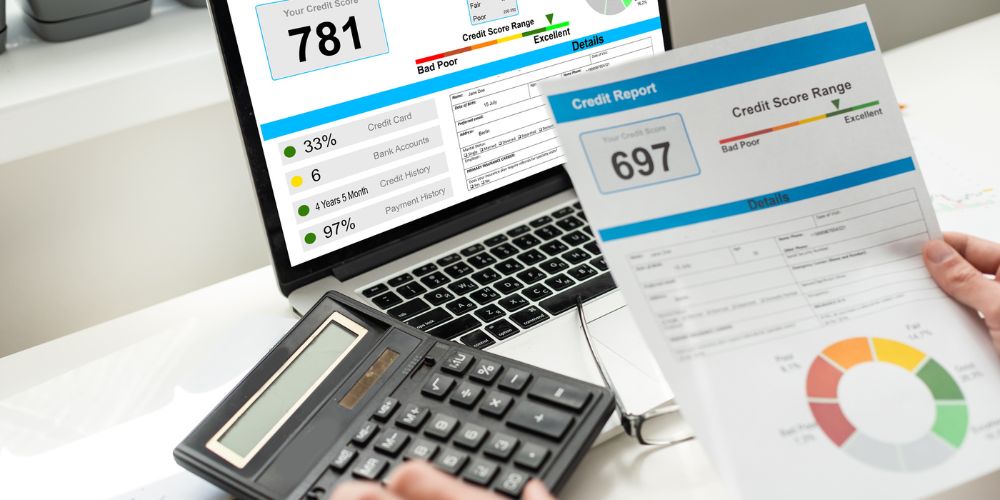When it comes to purchasing a car, it is essential to have a good understanding of credit scores and how they affect your ability to secure a loan.
Car dealers rely on credit reports and scores to assess your creditworthiness and determine the terms of your loan.
In the United States, there are three major credit bureaus – Equifax, Experian, and TransUnion – that compile information about your credit history.
However, car dealers primarily rely on a specific credit bureau that has become the industry standard: Fair Isaac Corporation (FICO).
What Credit Bureau Do Car Dealers Use?
Car dealers play a crucial role in helping people finance their vehicle purchases. When deciding whether to approve a loan, car dealers need to assess the creditworthiness of potential buyers.
This is where credit bureaus come into play. Credit bureaus are responsible for collecting and analyzing credit information from various lenders and creditors, which is then used to create credit reports and scores.
Credit reports provide detailed information about an individual’s credit history, including payment history, credit utilization, and any accounts in collections.
On the other hand, credit scores condense this information into a three-digit number that represents an individual’s creditworthiness. These credit reports and scores are invaluable tools for car dealers in determining loan eligibility and interest rates.

FICO Credit Bureau – The Preferred Choice
While car dealers may have access to credit information from multiple bureaus, the primary credit report and score they rely on is provided by Fair Isaac Corporation (FICO). FICO has become the preferred choice for car dealers due to its long-standing reputation and widely accepted credit scoring model.
The FICO score is calculated using a complex algorithm that takes into account various factors like payment history, credit utilization, length of credit history, and types of credit used.
The scoring model provides a standardized way for car dealers to evaluate potential buyers and make reliable decisions on loan approvals. FICO scores range from 300 to 850, with higher scores indicating a lower credit risk.
Equifax, Experian, and TransUnion – The Major Credit Reporting Bureaus
Equifax, Experian, and TransUnion are the three major credit reporting bureaus in the United States. These bureaus collect information from lenders, credit card companies, and other sources to compile credit reports and calculate credit scores.
While car dealers primarily rely on FICO, they still use credit data from these bureaus to assess an individual’s creditworthiness. Each bureau gathers data from different sources, resulting in variations in credit reports and scores.
It is essential for car buyers to review their credit reports from all three bureaus to ensure accuracy and potentially correct any errors that might impact their creditworthiness.
1. Equifax
Equifax is one of the major credit reporting bureaus and provides credit reports and scores to lenders and car dealers.
They collect information from various sources such as banks, credit card companies, and other financial institutions. Equifax uses this data to generate comprehensive credit reports that help car dealers assess creditworthiness.
2. Experian
Experian is another major credit reporting bureau that compiles credit information and provides credit reports to car dealers and other creditors.
They gather data from different sources and use it to create credit reports that help car dealers evaluate potential buyers. Car dealers often rely on Experian’s credit reports to make informed decisions on loan approvals.
3. TransUnion
TransUnion is the third major credit reporting bureau used by car dealers to assess creditworthiness. They collect credit information from various lenders and creditors, which is then used to generate credit reports.
TransUnion’s credit reports provide valuable insights into an individual’s financial history, helping car dealers make informed decisions on loan approvals.

VantageScore vs. FICO Score – Understanding the Difference
Aside from FICO, another commonly used credit scoring model is called VantageScore. VantageScore was developed by the three major bureaus – Equifax, Experian, and TransUnion – as an alternative to FICO.
However, FICO remains the more popular choice among car dealers.
The main difference between VantageScore and FICO Score lies in the scoring algorithms and factors considered. VantageScore 4.0, the latest version, uses a similar scoring range as FICO (300-850) but places more emphasis on recent credit history.
On the other hand, FICO’s scoring algorithm evaluates factors such as credit utilization, payment history, and length of credit history more comprehensively.
While some car dealers may consider VantageScore, FICO remains the go-to credit scoring model in the industry due to its longer history, acceptance, and widespread use by lenders.
Frequently Asked Questions
What credit score do car dealers use?
Car dealers primarily use the FICO score to assess creditworthiness. FICO scores range from 300 to 850, with higher scores indicating lower credit risk.
Which credit bureau is used most for auto loans?
While car dealers have access to credit information from all three major bureaus, they primarily rely on the credit report and score provided by the FICO credit bureau.
Do car dealerships use Equifax or TransUnion?
Car dealerships may use credit data from Equifax, TransUnion, or Experian, but they primarily rely on FICO scoring models rather than specific credit bureau data.
Conclusion
Understanding credit bureaus and the role they play in car financing is crucial for anyone looking to purchase a vehicle.
Car dealers rely on credit reports and scores provided by the Fair Isaac Corporation (FICO), which is the industry standard in evaluating an individual’s creditworthiness.
While Equifax, Experian, and TransUnion provide credit information, they are not the primary credit bureaus car dealers use.
By understanding the credit bureau system, consumers can monitor and improve their credit scores, ensuring they secure the best loan terms and interest rates when purchasing a car.
It is important to review credit reports from all major bureaus and correct any errors to present an accurate credit profile to car dealers. With this knowledge, car buyers can approach the financing process confidently and make informed decisions based on their creditworthiness.


 Tags:
Tags:










